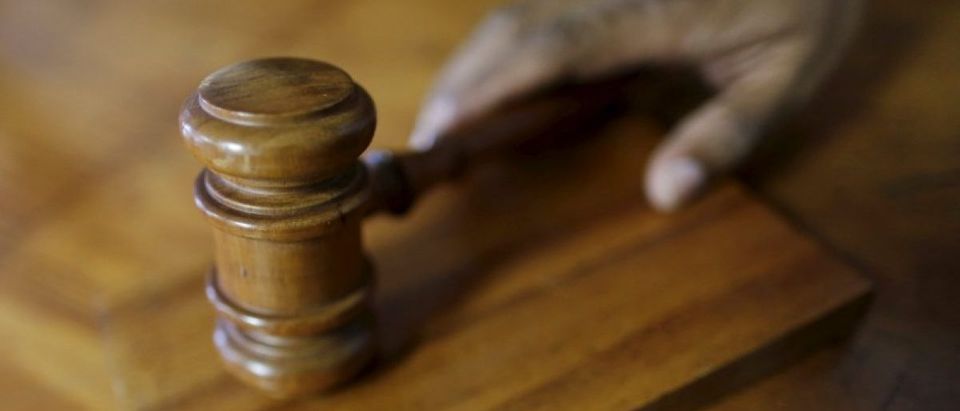There’s a growing phenomenon of wizened robe-wearers treading over more and more ground in the realm of national security, in the realm of sovereignty itself, all while abdicating their duty to protect the actual rights that affect most people on a daily basis. The inability of judges to restrain themselves from those specialized concerns, like the infamous recent Trump immigration order, poses real problems. Who are these judges and the people who support their gavel-leaded absolutism?
It’s the Juristocrats!
Some questions are inherently political. They’re the big picture issues that have no easy answers—was Lincoln right to suspend habeus corpus, should the Brits have bombed Dresden? It’s highly questionable whether those types of questions should be subject to review by a non-expert in an isolated courthouse chamber.
The importance of an independent judiciary isn’t the same as holding judicial supremacy to be of the utmost importance.
Yet, many jurists don’t hesitate for even a moment to, for example, decide the US can’t close its borders to known-to-be chaotic countries, to decide the United Kingdom hasn’t the permission to declare itself an independently sovereign nation.
Judicial supremacists have even taken the infamous ticking time bomb scenario and decided that an impending terror attack isn’t reason enough to use torture to extract information from a terrorist. That’s a hell of a decree given the unknowable nature of future security threats.
In our moment, what the world is wrestling with is a series of existential crises that at their core involve questions of national identity, sovereignty, and security. France is in the midst of a presidential race that may make or break the EU, unusual alliances are being plotted across the international spectrum, and the world is sorting itself out. Nonetheless, non-expert jurists insist they’re qualified to decide these questions of security and nationhood.
Consider that the 9th Circuit’s justification for striking down Trump’s immigration ban was that “[t]he Government has pointed to no evidence that any alien from any of the countries named in the Order has perpetrated a terrorist attack in the United States.”
Maybe so. But that doesn’t mean that evidence or probability of an attack is non-existent.
That’s the way judges think: You haven’t provided any evidence, so evidence must not exist. A quick internet search would tell the judges, minimally, that Abdul Razak Ali Ratan, a refugee from Somalia, immigrated to the US in 2014 before committing a terrorist attack. This renders the Politifact headline “MOSTLY TRUE: Odds of fatal terror attack in U.S. by a refugee? 3.6 billion to 1” either bizarrely blinkered or, considering the terror attacks in Europe and warnings from European police forces regarding intended future attacks by refugees and non-refugees alike, probabilistically wrong.
There’s absolutely a debate to be had about the wisdom of admitting refugees from war zones. In the realm of national security, Congress can act as a pressure valve on the executive. But judges shouldn’t be foreclosing on that debate.
Forewarning of a Trumpian judicial blitzkrieg—appropriate terminology given the common analogizing to Hitler that greets the new President’s every policy maneuver—paints the President’s attacks on the 9th Circuit as foreshadowing the “great harm [he can do] to the independent judiciary.”
A judge calling a politician a “faker” and a politician calling a jurist a “so called” judge are slights in the same measure. The pejoratives are pretty much the same.
This double-standard is yet another hypocritical exaggeration, like the argumentum ad hitlerum that accompanies opponents of conservatives and libertarians wherever they may go—Marine Le Pen is like Hitler, Geert Wilders is like Hitler, Benjamin Netanyahu is like Hitler, Nigel Farage is like Hitler, Stephen Harper was like Hitler, and so on. Each of those right-leaning leaders has had to tangle with judges on matters that should be strictly within the political realm.
And think about the idea underpinning former Israeli Supreme Court Justice Aharon Barak’s concept of an unconstitutional constitutional amendment: It doesn’t matter whether you passed an amendment. I make the final decisions here. That philosophy illuminates quite well why the Israeli Supreme Court unhesitatingly undercuts their country’s energy independence, despite Israel’s precarious position in the Middle East, and all the trouble that a lack of domestic energy supply has caused them in the past.
Justice Oliver Wendell Homes said “if my fellow citizens want to go to Hell I will help them.” At least Holmes understood that the choice wasn’t entirely up to him.
He might of been trying to say this: Less is more.
Alex Grass is a Young Voices Advocate and student fellow at the Floersheimer Center for Constitutional Democracy. He lives in Brooklyn with his wife Gina, and his two kids, Joseph and Lucia.












